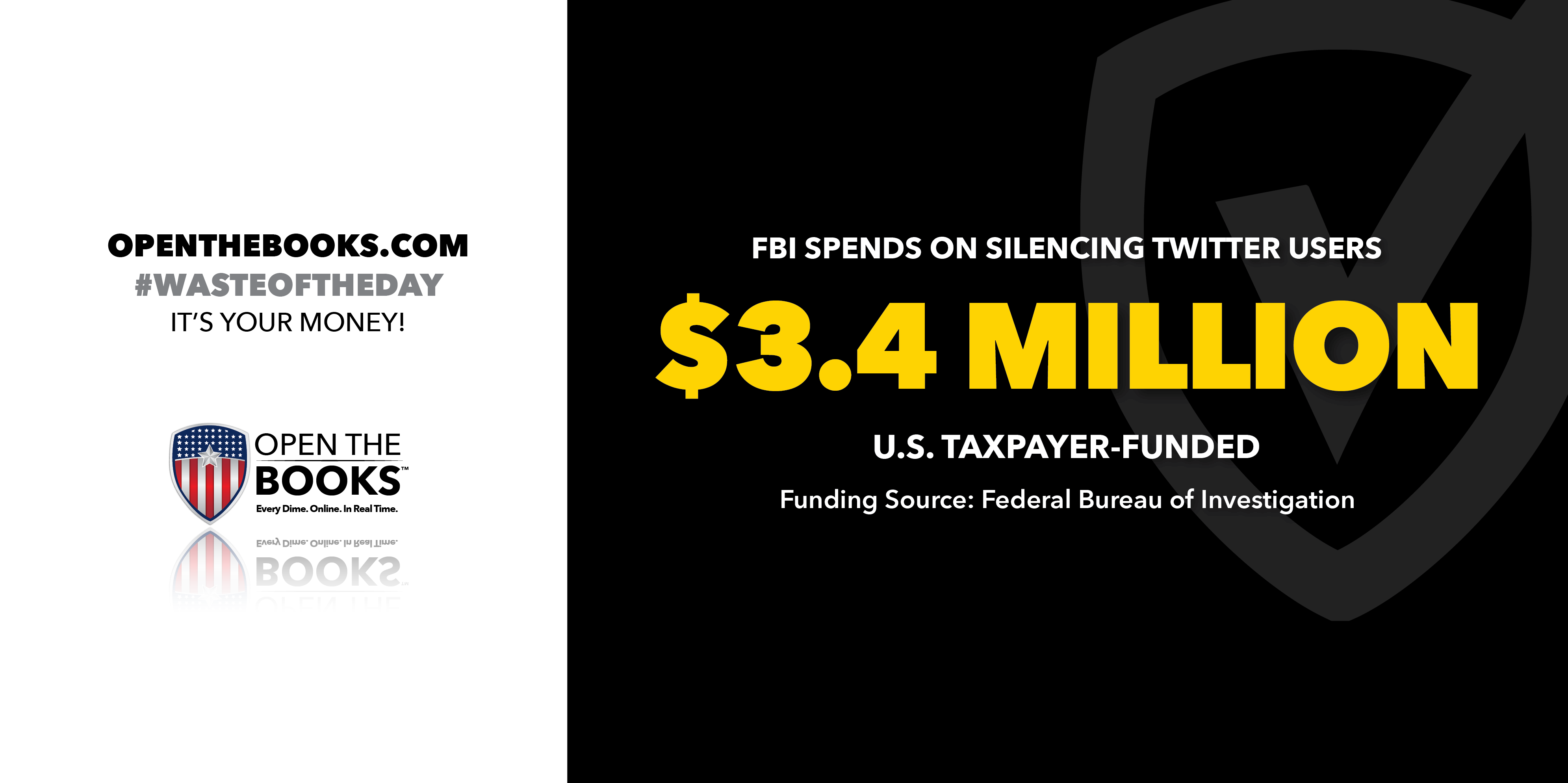
FBI Pays Twitter $3.4M to Ban Accounts for ‘Misinformation’
The Federal Bureau of Investigation paid Twitter $3.4 million to ban or suspend accounts for “foreign influence” and “misinformation” on the social media platform.
The FBI has been policing speech on the social media site for years, eventually paying Twitter the money as reimbursement for the work, The New York Post reported.

The inner workings of Twitter and its cooperation with federal authorities have been coming out in tranches released by independent journalist Matt Taibbi — what have become known as the Twitter Files — since business magnate Elon Musk took over Twitter.
Taibbi has been tweeting and The Post has been reporting screenshots of emails between the FBI and Twitter staff, with FBI flagging specific accounts for alleged “civic misinformation policy violations,” “spam behaviors,” “platform manipulation,” and “ban evasion,” asking Twitter to suspend or ban users.
The files show that Twitter held monthly meetings with the FBI, Department of Homeland Security, the Justice Department and the Office of the Director of National Intelligence, The Post reported.
The FBI and other federal agencies focused on social media after the 2016 election, Taibbi noted on Twitter, as the FBI’s social media task force grew to 80 agents and Department of Homeland Security worked with outside security contractors and think tanks “to pressure Twitter to moderate content.”
Taibbi revealed that the FBI was so aggressive in sending Twitter “possible violative content” to look at and go after, that an employee said the materials were a “monumental undertaking” that needed several employees to complete.
“Instead of chasing child sex predators or terrorists,” Taibbi tweeted, “the FBI has agents — lots of them — analyzing and mass-flagging social media posts. Not as part of any criminal investigation, but as a permanent, end-in-itself surveillance operation. People should not be okay with this.”
The #WasteOfTheDay is brought to you by the forensic auditors at OpenTheBooks.com
This article was originally published by RealClearPolicy and made available via RealClearWire.



